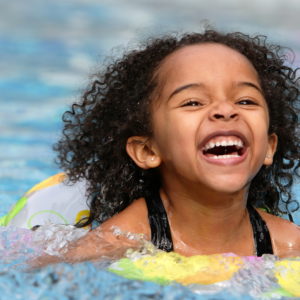It’s hot out, the kids are itching to go swimming and officials at the U.S. Centers for Disease Control and Prevention (CDC) say there is no evidence that COVID-19 can spread to people through water that’s chemically treated.
So, why are public pools still closed in so many places?
In New Hampshire — where school is over for the academic year and the economy is reopening — officials in the state’s three largest municipalities, Manchester, Nashua and Concord, have made the decision to close their public pools for the summer.
In neighboring Massachusetts, which is part of the epicenter of the COVID-19 pandemic in America, many municipalities are opting to keep the pools closed, despite the fact that daily temperatures are in the 80s and 90s.
States do have a large say in what municipalities can choose when it comes to opening their public pools for the season.
It is estimated by the swimming news organization SwimSwam that 10 states have limited public pool capacity to 50 percent. In Massachusetts, public pools are allowed to have 40 percent capacity. Colorado and Texas are limiting capacity to 25 percent, and in Delaware officials have limited capacity at public pools to 20 percent and no swim lessons or team practices are allowed, according to SwimSwam.
The concept of keeping public pools closed for swimming lessons does not sit well with the executive director of The ZAC Foundation, which was co-founded in the honor of 6-year-old Zachary Archer Cohn, who died after his arm became entrapped in a pool drain.
Megan Ferraro is the executive director of the foundation, which is located in Fairfield, Conn. It works with Boys & Girls Clubs of America to help kids develop their swimming abilities and ensure the safety of children around bodies of water.
“If children don’t have access to water safety classes, they won’t have the opportunity to learn how to swim. We worry. We worry especially about those children near areas of open water, like ponds and lakes and rivers, where because town pools won’t be reopening, children will look for unguarded areas of open water to cool off” Ferraro said on Monday.
The Zac Foundation is one of more than 20 water safety and competitive water sports organizations that have come together to launch the Aquatics Coalition to help guide states and municipalities across the country in reopening swimming facilities for instructional aquatics.
The medical consensus is that pools are among the safest places to be as long as appropriate social distancing is practiced. “There’s nothing inherent about ocean water or especially pool water that is risky. The bug isn’t transmitted via a waterborne route,” Dr. Ebb Lautenbach, chief of infectious diseases at the University of Pennsylvania’s Perelman School of Medicine, told the New York Times. “Chlorine and bromine that are in pools inactivate the virus and makes it even lower risk in terms of catching it from the water.”
The Aquatics Coalition in Colorado Springs, Colo., has developed a series of best practices based upon guidance from the CDC. They have shared this information with the governors and city leaders throughout the country.
Shana Ferguson, chief commercial officer of USA Swimming, said the organization applauds public health professionals and policy makers and wants to be a part of the solution to the challenge of safe exercise during the coronavirus outbreak.
“The Aquatics Coalition is bringing together some of the best minds in water sports to identify and share best practices to minimize the risk of COVID-19 transmission in natatoriums and outdoor venues, while allowing a safer, phased re-entry into the pool,” Ferguson said in a statement.
Top tips from the Aquatics Coalition include measures for both outdoor and indoor pool facilities and include closing locker rooms and public drinking fountains, having staff working in “pods” to prevent exposure to COVID-19 and limiting the number of parents or guardians per child at the swimming facility.
“Aquatics-based exercise and rehabilitation programs have proven to be important contributors for both mental and physical health,” said Rowdy Gaines, three-time Olympic gold medalist and International Swimming Hall of Fame member. “We want to ensure that individuals who need pools to improve their health and well-being are able to access them in the safest manner as soon as possible.”

